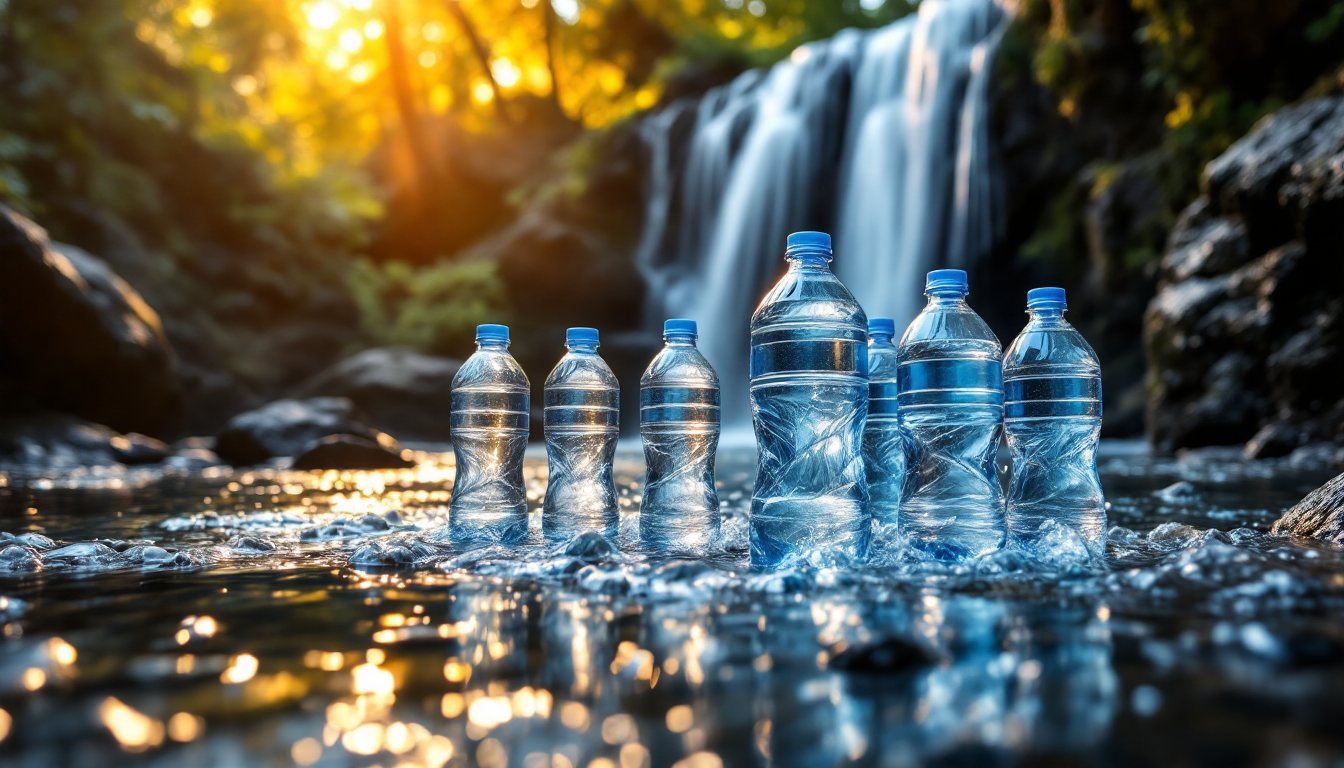The curious case of Cristaline Eau De Source 1.5L reveals an important truth about bottled water marketing. Despite being one of France’s most popular bottled waters, this product highlights a paradox in our perception of “healthy” versus “unhealthy” foods. After thorough analysis, I’ve discovered something surprising: there’s actually nothing unhealthy about this product.
Why Bottled Water Isn’t “Unhealthy” (Despite Environmental Concerns)
Cristaline Eau De Source is simply spring water with minimal mineralization. The nutritional profile shows exactly what you’d expect from water: zero calories, zero sugar, zero fat, and zero artificial additives. It contains approximately 67mg of calcium per liter and very low amounts of magnesium and sodium.
As Dr. Marion Nestle, professor of nutrition at New York University, explains:
“Plain bottled water is not a health concern. The health issues with bottled water relate to environmental impact and misleading marketing, not the water itself.”
The Real Health Consideration: Environmental Impact
While the water itself poses no health risk, the plastic packaging creates significant environmental concerns. Each 1.5L plastic bottle contributes to the estimated 8 million metric tons of plastic entering our oceans annually. Research from the University of Victoria found microplastics in 93% of bottled water samples tested.
Mineral Content: Lower Than Some Competitors
Cristaline’s marketing centers around being “lightly mineralized” spring water. This isn’t harmful, but it means the water provides minimal nutritional benefits compared to mineral-rich alternatives. The low mineralization has led some nutritionists to question its value proposition compared to filtered tap water.
A comparative analysis reveals:
- Cristaline: 67mg calcium/L, minimal magnesium
- Evian: 80mg calcium/L, 26mg magnesium/L
- Contrex: 486mg calcium/L, 84mg magnesium/L
Marketing vs. Reality: The “Health Halo” Effect
The marketing of bottled water often creates a “health halo” suggesting superior purity or health benefits. In reality, according to a comprehensive food testing analysis, bottled water rarely offers significant advantages over properly filtered tap water.
Consumer Psychology: Why We Pay for Water
Bottled water represents what marketing psychologists call “perceived value” rather than actual nutritional value. Like a patient who once told me, “I know it’s just water, but the bottle makes me drink more,” many consumers associate bottled water with healthier choices, despite limited evidence.
“Bottled water companies don’t sell water; they sell convenience and peace of mind,” explains consumer psychologist Dr. Sarah Richards.
Healthier Alternatives: What Experts Recommend
For those concerned about hydration quality:
- Reusable bottle with filtered tap water (most economical and environmentally friendly)
- Mineral-rich waters for additional magnesium and calcium if needed
- Home filtration systems for tap water quality concerns
The Bottom Line: Not Unhealthy, Just Unnecessary
Cristaline Eau De Source 1.5L isn’t unhealthy—it’s simply water in a bottle. The real issue is that consumers pay a premium for something readily available from the tap, while generating plastic waste. Like many highly processed foods, the problem isn’t always what’s in the product, but what we’re led to believe about it.
Unlike sugar-laden beverages or high-sodium processed foods, this water isn’t harming your health—it’s just an unnecessary expense that impacts our planet.
